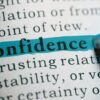
We don’t always spend because we need to.
Sometimes, we spend to fill a silence.
That dinner after a long week.
That online order that shows up when you’re feeling stuck.
That small purchase that doesn’t change your life — but gives you a little relief.
It’s not just about money. It’s about emotion.
Spending has become a modern way to express what we don’t say out loud — exhaustion, frustration, comparison, or the quiet need to feel like we’re still moving forward.
And while it may look like a financial problem, it’s often an emotional one.
Spending to Feel — Not to Have
Every unnecessary purchase has an emotional story behind it.
Stress, loneliness, or uncertainty trigger the same instinct: we want to feel in control again.
And spending gives us that — quickly.
A click, a purchase, a confirmation message. For a few seconds, your brain rewards you with a dopamine hit: pleasure, relief, control.
But that feeling fades as fast as it came.
What follows is guilt. Not just guilt for spending, but for realizing the purchase was emotional, not intentional.
The problem isn’t spending money — it’s using money to manage emotions that have nothing to do with money.
A World Built to Tempt You
Spending has never been easier.
You don’t even need to pull out your wallet anymore — everything is saved, stored, one click away.
Social media and e-commerce platforms are designed to make temptation effortless.
Algorithms know your habits, your timing, even your weak moments. They don’t just show you what you like — they show you what you’ll have the hardest time resisting.
And that’s how consumption stops being a choice and becomes a reaction.
The problem isn’t that we buy. It’s that we forget why we’re buying.
The Emotional Price of “I Deserve It”
“I earned this.”
“After this week, I deserve it.”
“Just this once.”
Each phrase sounds harmless. But repeated often enough, they become emotional excuses that justify the cycle.
We start using consumption as a reward system instead of a reflection of real need.
And that habit costs more than money.
It keeps you chasing comfort that doesn’t last — because nothing you buy can fix what’s missing inside.
Emotional spending doesn’t fill the void. It distracts you from it.
And the more you try to cover it with things, the bigger it grows.
How to Break the Cycle
Breaking the pattern doesn’t mean you stop buying — it means you start buying with intention.
It’s not about spending less. It’s about spending consciously.
- Recognize your triggers.
We all spend for different reasons — stress, boredom, fear of missing out. Understanding your pattern is the first step toward change. - Create a pause.
When the impulse hits, wait 24 hours. If you still want it tomorrow — and can pay for it comfortably — go ahead. If not, you’ve identified an emotional purchase. - Redirect the energy.
Instead of fighting the impulse, channel it: go for a walk, tidy up, cook, write, review your goals. You don’t have to suppress the emotion — just move it somewhere else. - Redefine reward.
Not every “I deserve it” has to cost money. Sometimes what you deserve is rest, quiet, saying no, or doing absolutely nothing.
The Kind of Well-Being You Can’t Buy
Modern life sells the illusion that happiness has a price tag.
But peace of mind isn’t for sale.
Real financial freedom doesn’t come from owning more — it comes from needing less.
When money stops being a tool to soothe emotions and becomes a way to build purpose, everything changes.
You stop spending reactively and start choosing intentionally.
You stop trying to fill your life and start designing it.
Money shouldn’t mirror how you feel in the moment — it should reflect what truly matters to you long-term.
Final Reflection
Spending isn’t the problem.
The problem is using spending as emotional anesthesia.
Every impulsive purchase is a conversation you’re not having with yourself.
And until you have it, the cycle continues: emotion → impulse → spending → guilt → emptiness → emotion.
You don’t have to be perfect to break it — just aware.
Because once you understand why you spend, money stops controlling you… and starts serving you.








